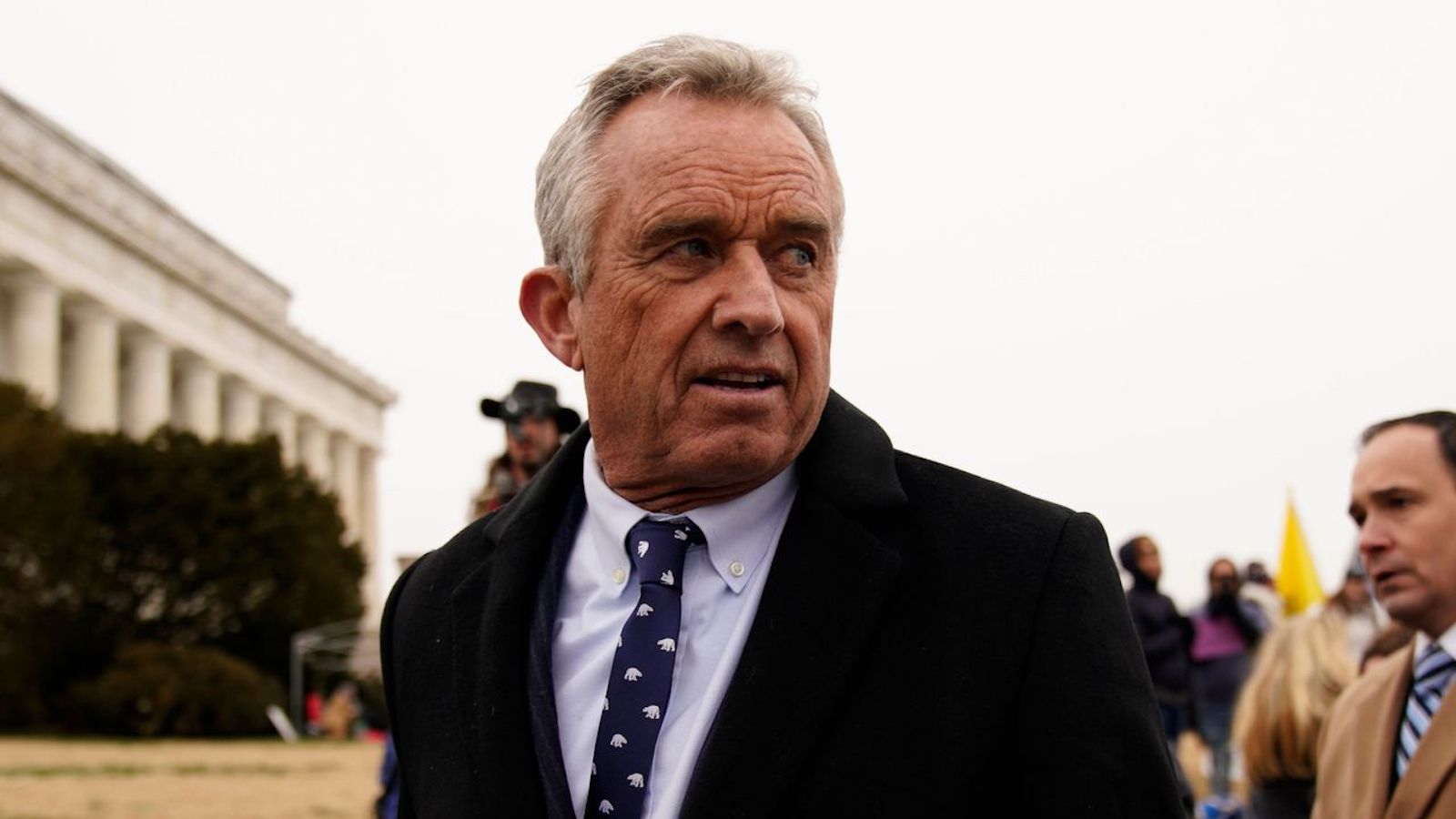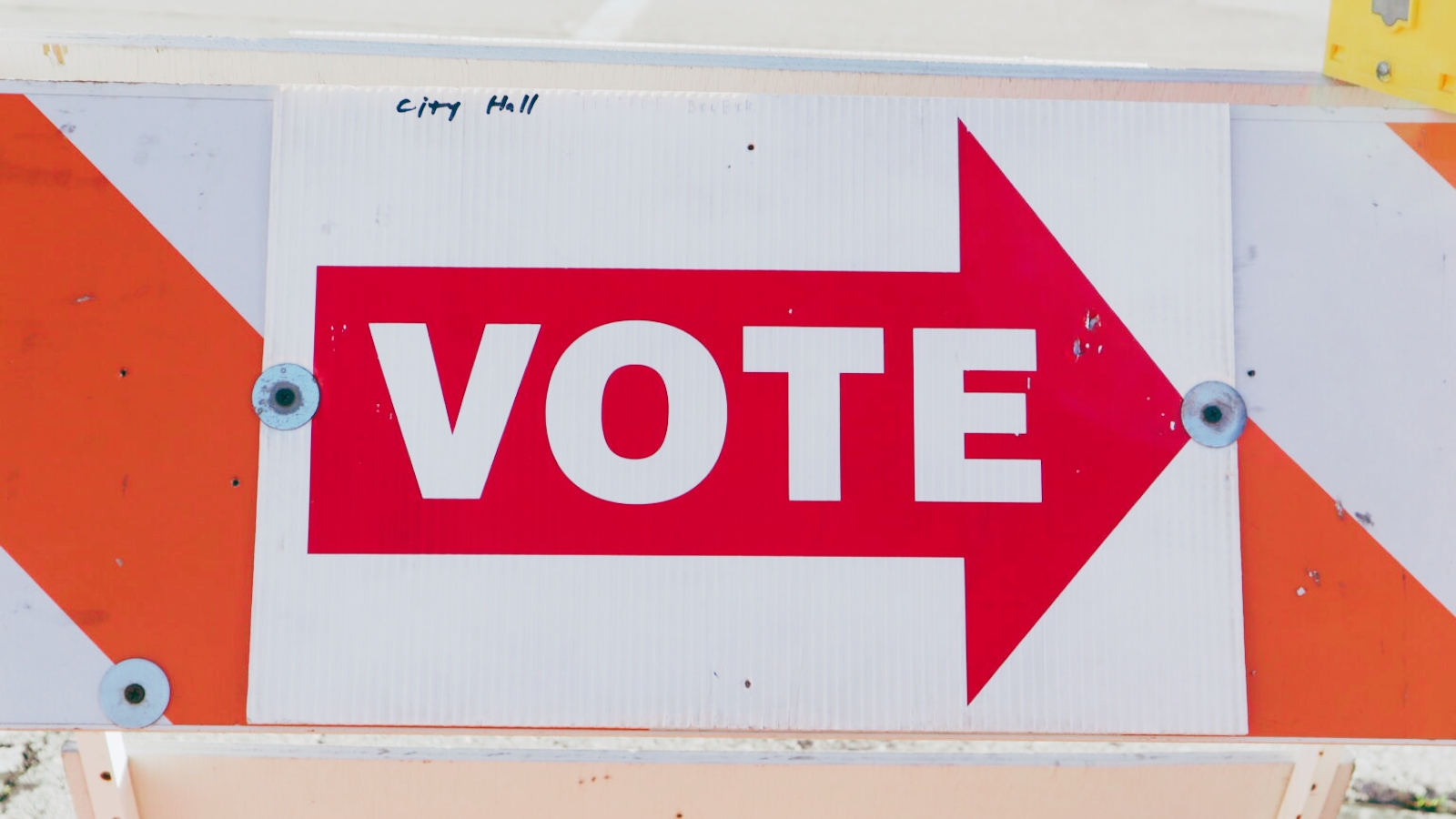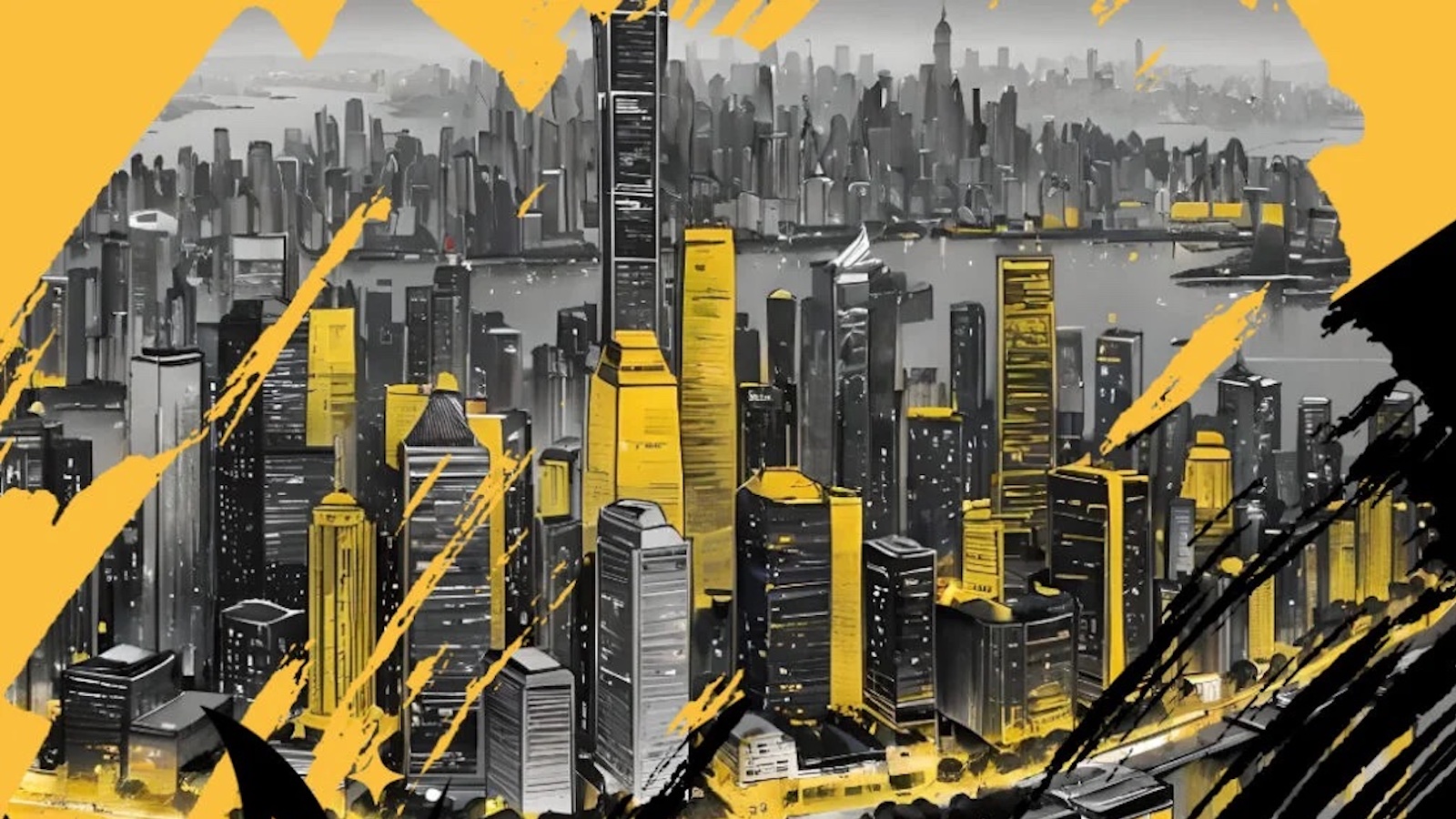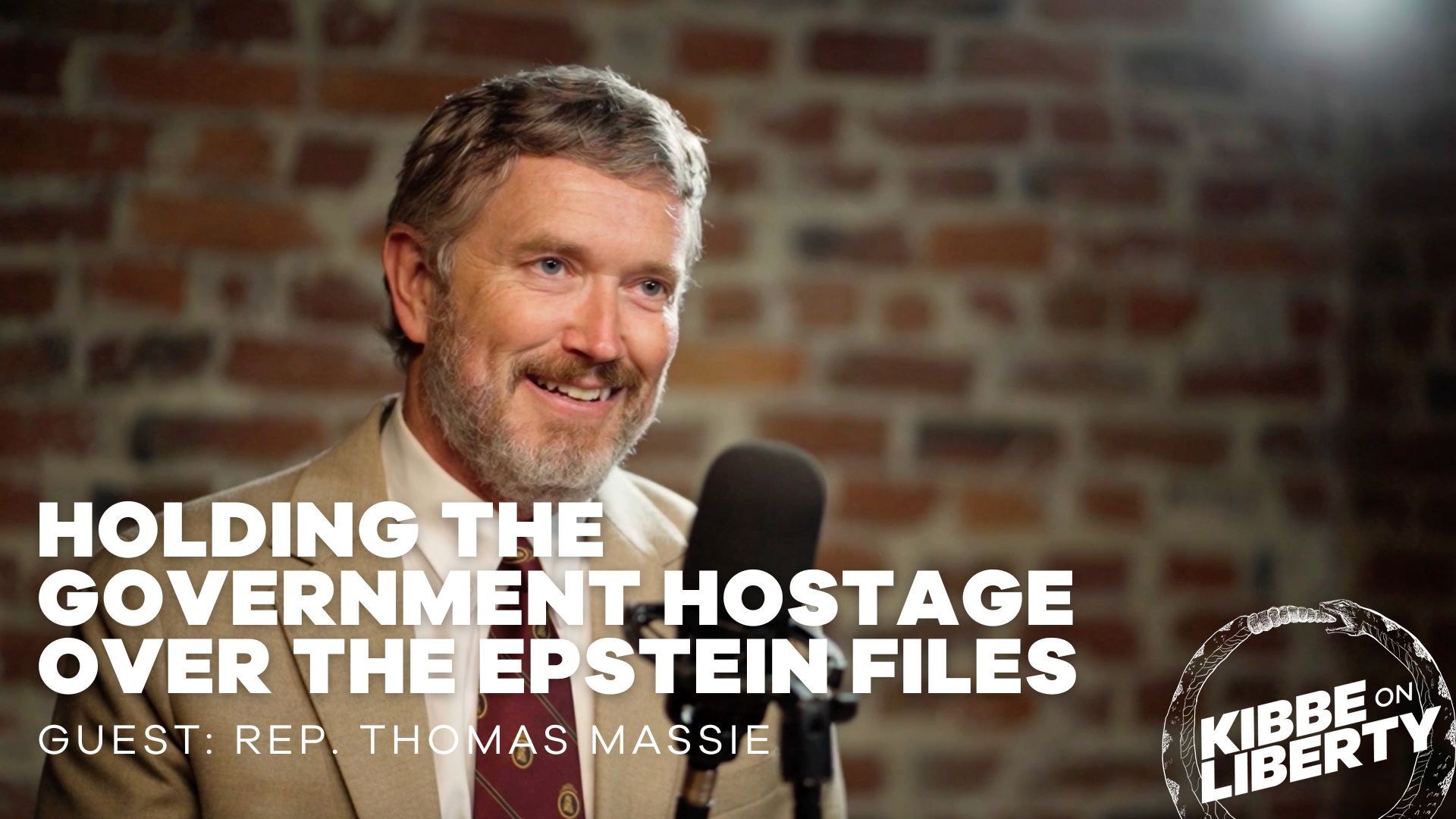
A Declaration Driven Argument for RFK Jr.
“An educated citizenry is a vital requisite for our survival as a free people.” —Thomas Jefferson
Party politics is a funny thing. Because of the horse race to a false choice finish, it can be very easy to claim that party trumps candidates. After all, we are the step-children of the parliamentary system that may have some leftover conditioning in our DNA that pre-disposes us to voting for the party instead of the person; so that the full agenda can be advanced. I would anecdotally suppose that most libertarian-minded people bluster pre-election, rant and complain, hold firm for their principles, then ultimately succumb to the same old tripe that this is the “most important election of our lifetime” and pull the lever for the party most ideologically aligned with their fundamental beliefs. It’s an exasperating endeavor that leaves the electorate tired and miserable. The ideologues on either side of the aisle are reconciled and passionately in love with this process because for the last 60 years the outcome has built a bulwark around the military-industrial-corporate complex that isn’t easily undone—and those in the game have had their power expand exponentially.
I’ve been a “burn it all down” guy for a long time. I remember being wary of the surveillance state after 9/11 and a vocal disbeliever in the need for endless wars that ultimately cost thousands of lives, trillions of dollars, decades of time so that we could replace the dastardly Taliban with… the Taliban. The federal government and their minions in the alphabet soup of entrenched agencies was and remains a charade of epic proportion. I reacted like most who feel the oppression of a behemoth state and have argued that it all needs to be amazingly smaller, less connected, and that the only hope was another American revolution that dismantled it all to the point of nothingness. It’s a fine argument and one that seems most rooted in the American aesthetic of secession. (We’ve had a habit of pushing hard against the powers-that-be and choosing liberty over comfort, even when it meant breaking up the band.)
We as Americans have this wonderful heritage of desiring an anti-intrusive government. I think that there is a genuine drive to check the powers that impose their will upon our living and resist the micro-tyranny of the state. So for hundreds of years, the United States has been able to resist the totalitarian instincts of popular ideologies, people, and bureaucrats.
We have rested firmly in the preamble of the Declaration that, “We hold these truths to be self-evident, that all men are created equal, that they are endowed by their Creator with certain unalienable Rights, that among these are Life, Liberty and the pursuit of Happiness.—That to secure these rights, Governments are instituted among Men, deriving their just powers from the consent of the governed…” Most American citizens know and take pride in this revelational concept that the King is not ultimately the divine manifestation of wisdom or God, and that instead it is the people alone who collectively can determine their destiny. This underpinning has been entrenched in our blood like a spike protein from an mRNA vaccine. We live with it, take pride in it, and ultimately embody it as a society. That is until the magic elixir of Orangeman Trump, COVID, and the Experts on Everything dismantled all of the institutions we reluctantly yet pragmatically trusted.
I hate the modern moment. Nothing works in America, or around the world for that matter, and our people are soft. We still see masks at violin recitals and fear in many people’s approach to living. Our politics are broken, the debt ceiling still remains the ever-present Battle Royale with no consequence. The middle class is dying, our country is losing its core resonance with an invasion of immigration and horrible intellectualism from the universities. No one will turn off their television and we have placed ourselves in tribes so inclined to deafness and ideology that voices who speak out and appeal to the commonality of the American experiment are dismissed, silenced, and disavowed from existence in the discourse of a free people. It’s probably why I lean into secession and rebellion more than most. It seems so hopeless and such a fait accompli that it’s easier to say “Enough! Time to start over, and abandon it all.” The opening line from the Declaration seems more poignant than ever:
If COVID and the heavy handed happiness of governments have taught us anything over the last three years, it is that rights disappear not in a giant war or battle, but in a slow effusion and absorption of logical fallacies.
- Just 15 days to flatten the curve
- Vaccinations are the key to returning to normal
- This is a pandemic of the unvaccinated
- Small, fringe minorities are the problem
- Misinformation and disinformation are the problem
All of those sound logical, even altruistically kind to the vulnerable. But it’s all been total rubbish. Each of those and the plethora of other insidious statements left our rights shattered in a thousand pieces on the floor of a self-imposed prison; and those in power were delighted with the outcome.
This last season, I have looked for “hero” figures in the battle against this nonsense. Early on I heard Robert F. Kennedy Jr. speaking about the disastrous choices being made by the elites and the associated consequences foisted upon generations of Americans and world citizens forever. He seemed to be speaking in the summary maxim that you have to shoot your way out of totalitarianism. He was a siren voice in an ever so anemic landscape that spoke in opposition to the mainline thinking of his “party.” He stood up for the voiceless and warned everyone that compromising the first principles of the Constitution and the Bill of Rights would have devastating consequences. I embraced these outré COVID hero characters. They all were saying out loud the thing I believe most decent Americans knew, but were too afraid to say. The mainline person in the United States wanted to be decent to those around them, so they acquiesced and complied, only to find themselves surrendered to the malcontents and experts. RFK Jr. was having none of it.
I can’t say that I have followed his career pre-lockdown. I ultimately dismissed him because of his guilt-by-association with his political party. He seemed like every other dyed in the wool Democrat from a prominent Democrat family—someone opposed to most everything I think. I believed he was going to go along with all the narratives of that party’s current bastardized ideology. “Follow the science,” “the climate is changing so we need top down solutions,” “speech is only convenient to those saying the right thing”… etc. etc.
But COVID changed my thinking on this man. He was saying things that I never believed I would hear from a Democrat. They were principled and based upon what he believed about the nature of mankind. They were also surprisingly in alignment with how I think. He was an absolutist on free speech. He was for medical autonomy. He was for capitalist solutions to environmental issues and pollution. He was for freedom of the individual in regards to financing and money. He spoke about the need for freedom of worship and assembly. He was unequivocally opposed to the modern industrial surveillance state. He knew the cost of war and its horrific effect on the middle class and the poor. He was also surprisingly brilliant with his grasp of American history and the need for reliance upon the first principles of the country. So when he announced his candidacy for the presidency, I was more than intrigued. I heard his speech and believed it to be one of the most salient and sane political announcements I had heard. He was full of facts and thoughts, but also convicted about his beliefs. He said things that made me actually like America and its ideals.
I started digging—trying to find things I could disagree with. After all, I have to be set up in time for me to dismiss him by election season; he is in the party I like the least! Surprisingly with each podcast I heard, each dig I did into his thinking, I couldn’t find something in the last season of his life I could disagree with. This trend has continued. His recent speech at the Bitcoin conference had everything in his platform I think about digital assets and, as is typically his modus operandi, he had a masterful grasp on why Bitcoin has resonated with so many of us.
Here’s the thing. I want to dislike Kennedy. His uncle Ted was one of the people I had learned to loathe in my younger conservative days. So he is guilty by association simply by being the nephew of the Liberal Lion of the Senate. But when you listen, there’s a lot to like, and there is a rational argument to set down old pretense and bias and find compulsion towards his candidacy.
I saw a tweet by the great Tom Woods about the difference between the instincts of RFK Jr. and Ron DeSantis. The premise of the tweet was that RFK Jr.’s instincts are to preserve the state whereas DeSantis has better inclinations towards dismantling. I agree with this in my raging moments. I don’t want the state to have the powers it has, and it seems so impossible to reverse course that the revolution that is necessary is one of throwing all of it out. I would not advocate for violence and hope desperately that there is a peaceful solution to our growing divide. I’m also not naive enough to think that this wholesale dismantling could ultimately be the inevitable outcome of such a “long chain of usurpations.”
But once that happens and everything is tossed out, the question then arises—which is where I think Mr. Kennedy has a plausible argument for his position—what do you replace the ash heap with?
It might be wise to look back to the election of 1800 and try to comprehend what happened in that election. It was one that Jefferson called the Second American Revolution. He had no love for what the federal government had become under the Federalist Party. He thought they were unprincipled and willing to disregard the basic fundamentals and tenets of the Constitution. This was the author of the Declaration, the same Jefferson who led the secessionist movement from Great Britain. He must have, on some level, believed that the King was worth writing these words about:
Prudence, indeed, will dictate that Governments long established should not be changed for light and transient causes; and accordingly all experience hath shewn, that mankind are more disposed to suffer, while evils are sufferable, than to right themselves by abolishing the forms to which they are accustomed.
But when a long train of abuses and usurpations, pursuing invariably the same Object evinces a design to reduce them under absolute Despotism, it is their right, it is their duty, to throw off such Government, and to provide new Guards for their future security.”
Yet, when 1800 rolls around and Jefferson has had it with the very government that he was deeply involved in, his instinct was not to dismantle it. His approach is to use the system for the revolution. I think we find ourselves in Jefferson’s shoes today. It sounds very erudite and bold to advocate for the United States’ dissolution. The Randian in me thinks we may be too far gone and that we might be on a fool’s errand to try and rescue it. I’m drawn however, to the argument by Mr. Kennedy that the system needs a non-violent revolution, and to dismantle it entirely would leave far too many out in the wilderness and the future too uncertain. While it sounds nice to think that Mr. Woods’ instincts are the right ones, I would like to argue that some Jeffersonian temperance might be in order. It won’t mean that the future isn’t full of turmoil. Mr. Kennedy’s family history might just be a leading edge indicator of how much the captured state apparatus isn’t interested in their own demise. Governments are instituted as Jefferson said for a people’s safety and happiness.
A perfect anarchic world would mean that people would leave each other alone and not take their stuff. The reality of our existence is that there are unscrupulous people who will not abide by that maxim. Logically, if we are going to insist on those 50 stars on the flag, there is going to be a need for some form of government amongst 350 million people. The Constitution does make a very rational argument for divided and limited powers as being an instituted government with its foundations laid upon the principles of self governance—and one I might suggest has been a large force for good in this world.
The unfortunate outcome of the 20th century wars is that America, who was too young to be handed the keys to a global hegemony, and was always at incongruent odds with that philosophy, wasn’t capable of adhering to principles with that much power. A free people who insist on separated and limited powers are not going to have good inclinations towards being the global superpower. I believe we reluctantly took it on after the dissolving of the British Empire (an event we orchestrated and encouraged) to keep the world from major turmoil. But the suit has not fit us well. Mr. Kennedy understands that, and knows that the captured agencies that were instituted for well-intentioned reasons are no longer the guardians of the American limited power government, but instead are bent to authoritarianism. There’s an argument that these alphabet agencies should not exist, and given their chain of abuse, probably do not deserve to continue. Kennedy argues that given the embedding of corporatism and crony capitalism, those democratic safeguarding institutions are needed more than ever. COVID did rip down the curtain of wishful thinking and showed that if there were ever a time that agencies should have been watching, it was the NIH, CDC and FDA in relation to the Pharmaceutical snow job we all experienced with the vaccines. Those agencies are all captured by the corporations they are supposed to monitor—so it’s now just a revolving door of graft and job switching. America doesn’t want that. Most of us believe that there is a role for government, and that there is a need for people to have some layer of protection from the unscrupulous. Kennedy is making the argument that it can be done.
I’m hopeful his voice makes it to the table. It’s a long ago lost argument that deserves to be resurrected.
Free the People publishes opinion-based articles from contributing writers. The opinions and ideas expressed do not always reflect the opinions and ideas that Free the People endorses. We believe in free speech, and in providing a platform for open dialogue. Feel free to leave a comment.



